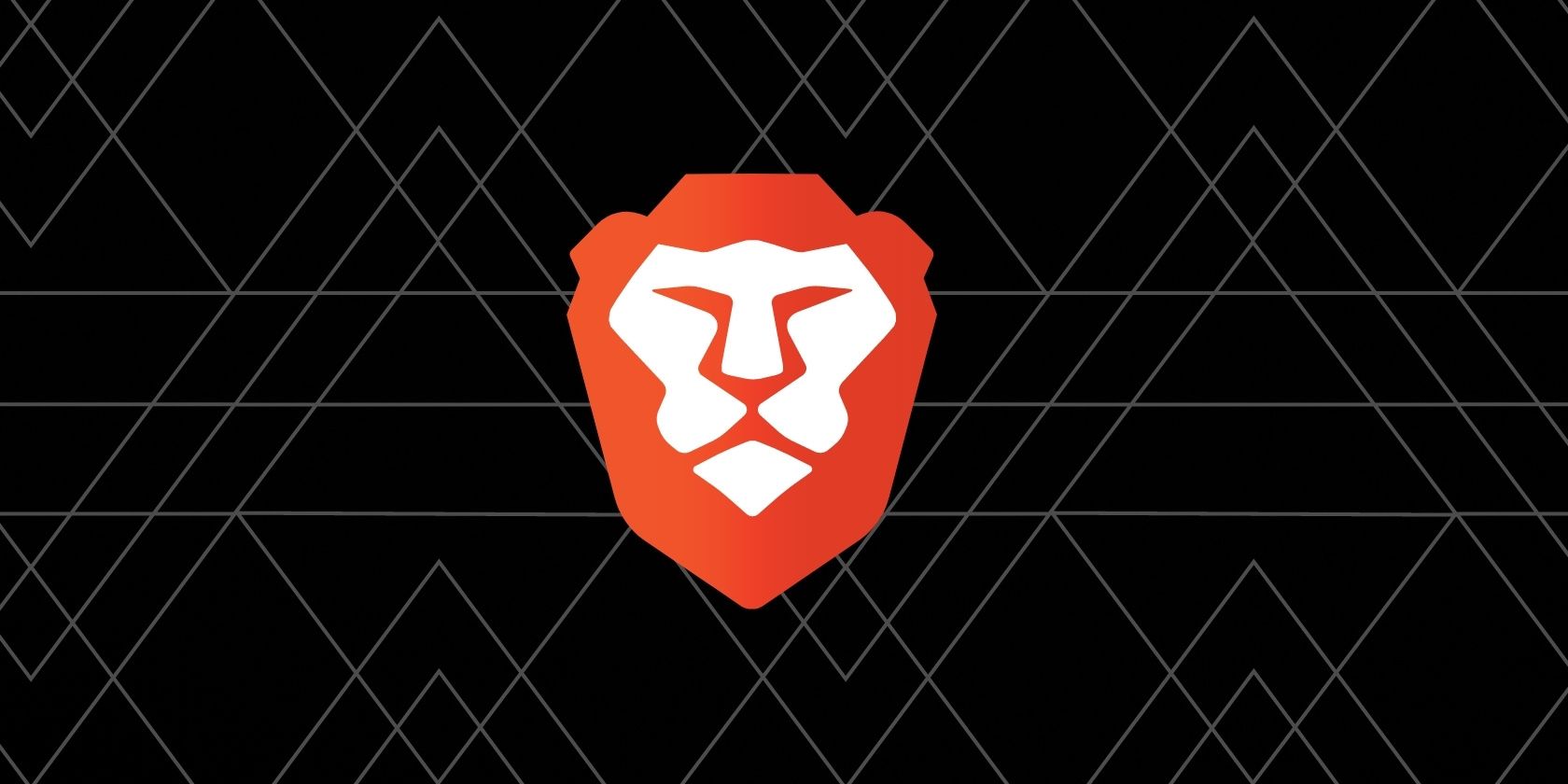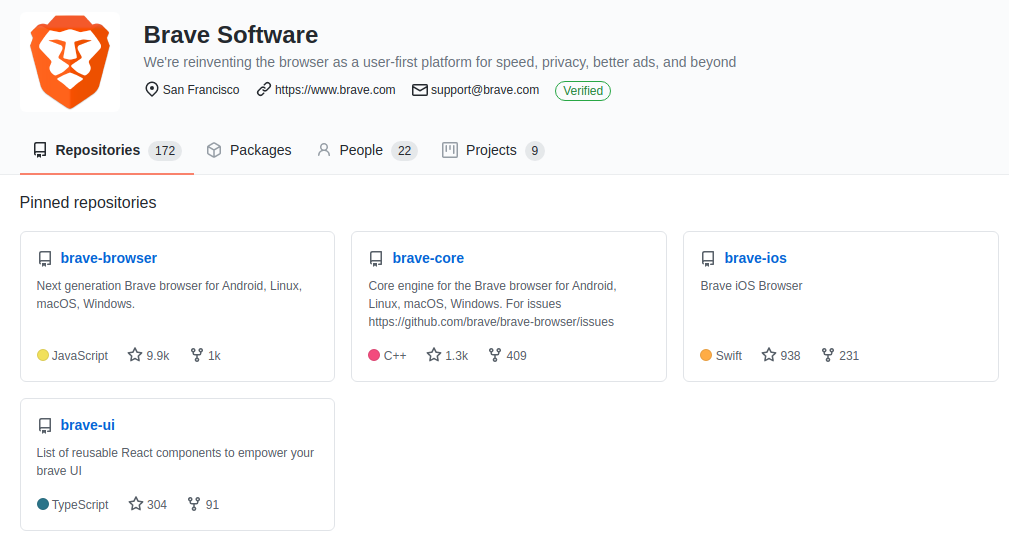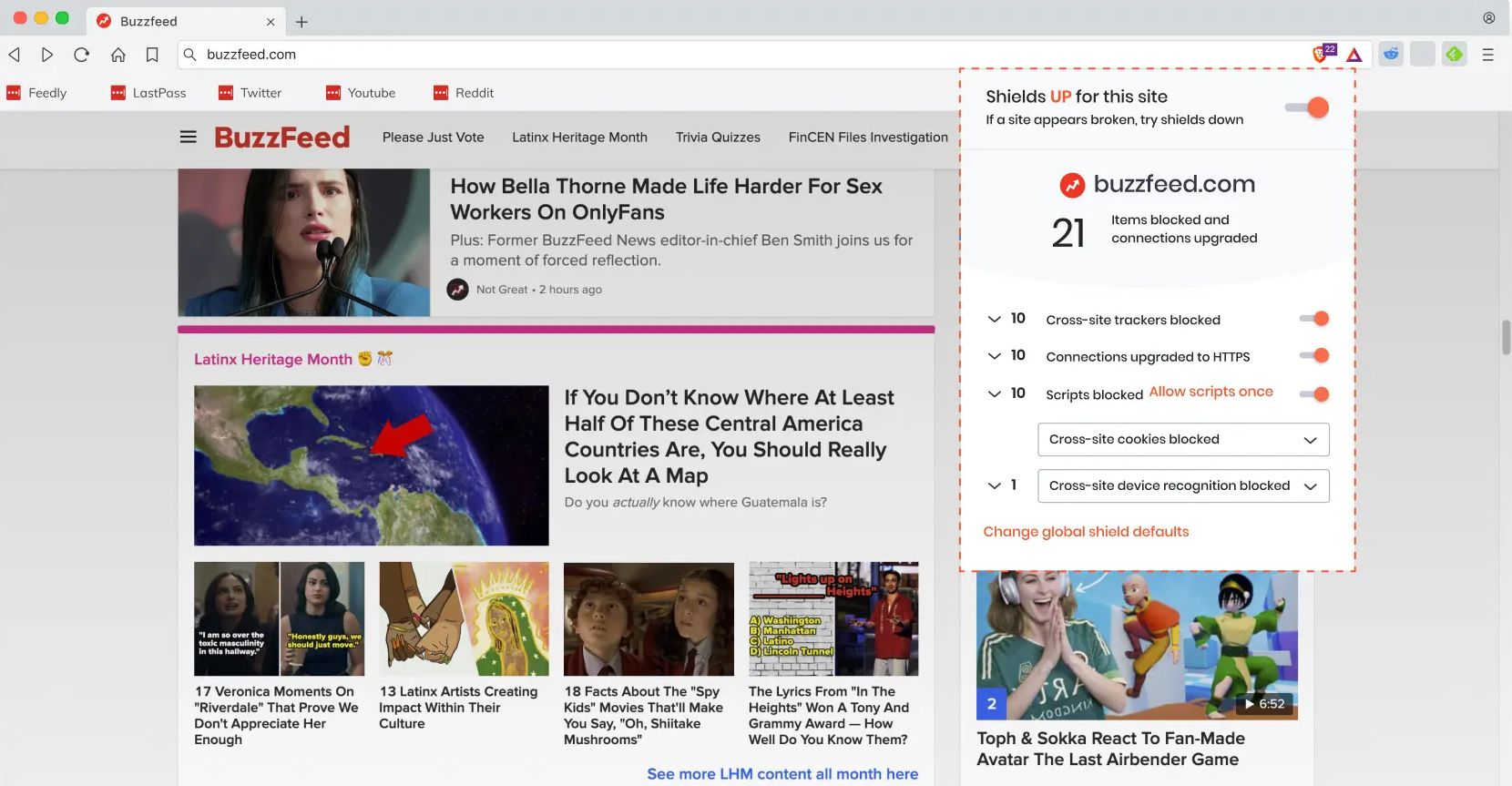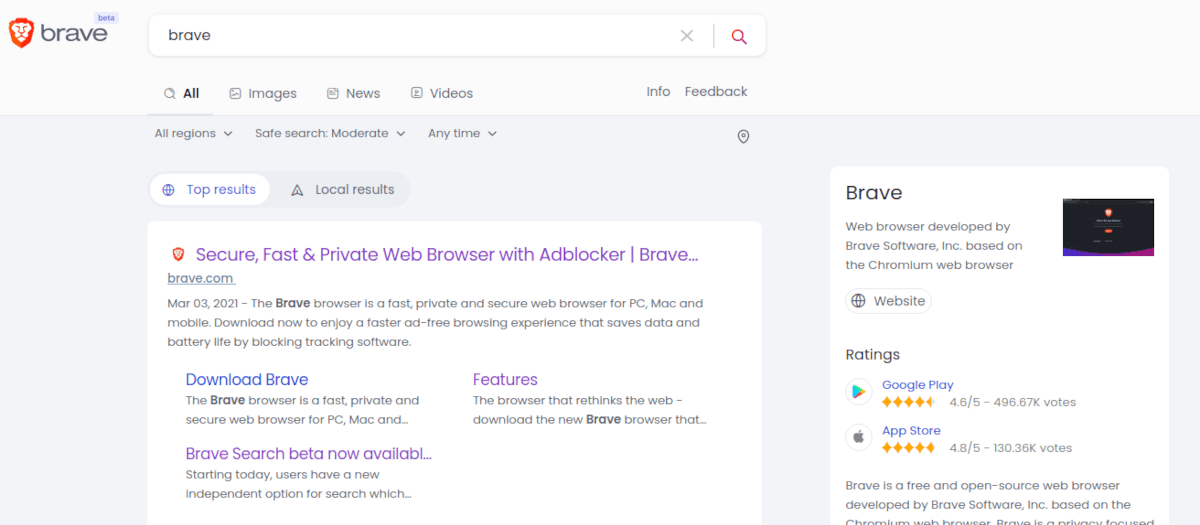Brave is an open-source browser that is originally based on Chromium. Unlike Google Chrome, it focuses heavily on performance and user privacy. Undoubtedly, Google Chrome is an impressive web browser—but for almost a decade now, it has been the dominant choice for a modern web browser experience.
So, to present a different approach to what Google offers, you will find several chrome alternatives available. And Brave is one of the popular ones. Here we'll take a look at some reasons the Brave browser is becoming so popular.
1. Moving Away from Big Tech
Services and products by internet giants constantly dominate the web. While they try to provide their best, it is always refreshing to have different choices. The advantage of having competitors like Brave makes sure that big tech does not dictate users' choice.
Also, tech giants are often considered to be anti-competitive. But users opting for alternatives such as the Brave browser, encourages healthy competition for them, which is a good thing.
2. Respects Privacy
If you are browsing the web, your activity is being tracked in one way or the other. But not everyone wants to give away their information online. Brave practices a better privacy policy by not collecting users' browsing activities.
Everything you do on the browser stays private on your device and will not be shared with any third-party. Also, Brave encrypts your sync data to seamlessly use the same browser settings and bookmarks on multiple devices.
3. Faster Browsing Experience
Chrome is commonly known to eat up system resources, especially if you have many things going on in your web browser. Brave surprisingly offers a faster experience with focus on being more resource efficient.
Officially, Brave claims that it needs 33 percent less memory when compared to Chrome and has a lower impact on your system's battery life. This may vary depending on your system configuration, but generally Brave manages to provide a faster experience.
4. Open Source
Chrome is a proprietary project originally based on Chromium (which is open source). But Brave is a completely open-source web browser. So, anyone can inspect the source code to verify the claims and assess the security of the browser if needed.
There are other benefits of using an open-source software as well, such as community involvement for adding features, and a couple more.
5. Beats Censorship
Most of the web is centralized. In other words, the resources you access is usually stored in a central storage location. Brave integrates the IPFS protocol that lets you access the decentralized web.
It allows users to utilize a peer-to-peer network where you can access resources using IPFS. This guarantees that no one can control or restrict access to a resource. Hence, with this feature integrated, Brave browser can be an effective tool to beat censorship of the web.
Also, with the help of the IPFS protocol, you can easily distribute resources without worrying about server resources or costs, which makes them more accessible as well.
6. Tracker Blocking
There are several types of tracking technologies used to track internet users. Some tracking could help make the web more useful. But other trackers may end up collecting too much data out of your browsing activity.
This is where Brave swoops in to offer a built-in privacy protection feature, where you can choose to block trackers. The feature could also drop the need of looking for privacy-focused chrome extensions.
7. Brave Rewards
Normally, you support your favorite websites by not blocking the advertisements displayed. And with Brave, you get another way to help the creators of a website, through Brave Rewards.
It is completely optional, but with Brave Rewards, you get to earn tokens when you visit and spend time interacting with a website. You will find a wallet integrated with the Brave browser, which stores these tokens, and you can contribute them to your favorite website, if you choose to.
Also, you can add funds to your wallet using any currency and spend them to support the publishers registered for Brave Rewards.
8. Tor Integration
For an enhanced level of privacy, Tor network is the way to go. Unfortunately, the easiest way to use it is through the Tor browser, which is not the most user-friendly or performance oriented browser.
Thanks to Brave, you can use Tor connectivity through a private browsing mode. It's worth noting that it is not a complete replacement of Tor browser, but Tor network is used as a proxy to hide your original IP and location.
9. Premium Firewall and VPN Feature for iOS Devices
Apple's iOS is all about tightly integrated services. Brave tries to step up a notch by offering a firewall and VPN service that you can use through the browser, though it's an additional paid option.
This may not be for everyone, but if you swear by Brave's web browser on your iOS device, the VPN can help enhance your digital privacy.
10. Integrated Services like Brave Search
Brave is not just a browser, but it pitches several other offerings like private advertising solution, decentralized web, and some more. Brave Search is yet another something impressive by them. It aims to be an independent search engine and focuses on providing privacy-friendly search results.
Even though you can use Brave Search on any other browser, it should be a seamless experience when coupled with the Brave browser. And that is an attractive offering for users.
Brave Is a Great Chrome Alternative
Brave manages to do many things better than Google Chrome. Considering that most of us increasingly rely on the web browser to get things done, the search for the perfect web browser will never stop.
Among all the other alternatives, Brave is becoming a popular choice as a web browser for desktop and mobile as well. It's constantly evolving—so there could be more reasons for its popularity by the time you are reading this.




